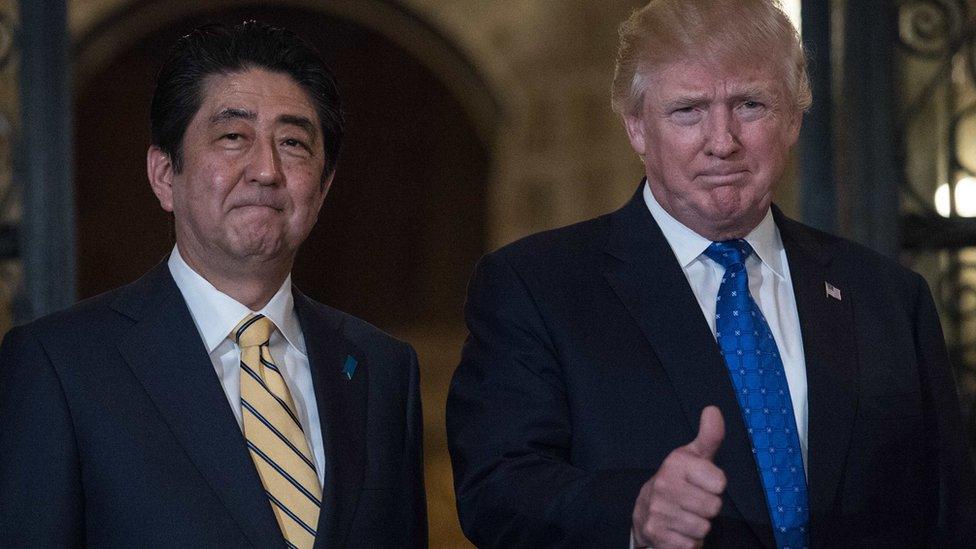North Korea missile test: US allies discuss steps
- Published
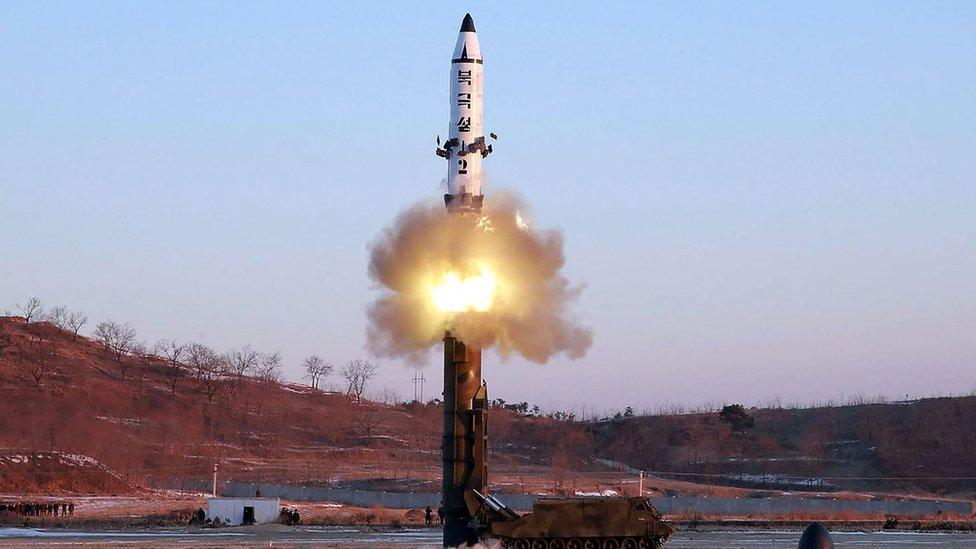
North Korea described the missile test as "successful"
Defence chiefs from the US, South Korea and Japan have vowed to strengthen intelligence sharing after North Korea test-fired a ballistic missile.
In a conference call, the US reaffirmed its commitment to the security of its two allies, the South's defence ministry said in a statement.
South Korean news agency Yonhap also said, external US F-22 stealth fighters and a nuclear-powered submarine would join military exercises next month.
The UN has also condemned the test.
North Korea is banned by the UN from any tests of nuclear or missile technology and has been hit by five sets of UN sanctions since its first nuclear test in 2006.
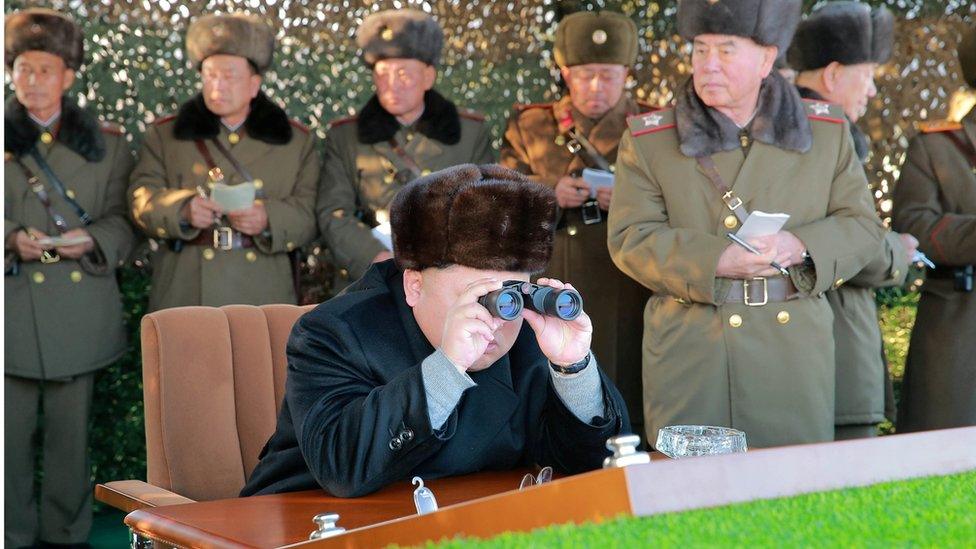
North Korea regards missile and nuclear development as its sovereign right
What was the UN's response?
The Security Council called it a grave violation of UN resolutions and urged members to "redouble their efforts" to enforce sanctions on North Korea.
"The members of the Security Council deplore all the Democratic People's Republic of Korea ballistic missile activities, including these launches," it said in a statement.
Japan, the US and South Korea called for the emergency UN Security Council meeting.
Following North Korea's fifth nuclear test in September, the Security Council adopted a resolution in December which, if fully enforced, would sharply restrict coal and metal exports from the country.

Read more

What was different about this missile test?
North Korea said it had "successfully" test-fired a new kind of ballistic missile on Sunday in a launch supervised by leader Kim Jong-un. It was the first such launch since US President Donald Trump took office.
State news agency KCNA described the device, fired into the Sea of Japan, as a "surface-to-surface medium-to-long-range ballistic missile".
The launch of the Pukguksong-2 indicates that North Korea has stepped up its nuclear and missile programmes, according to Andrea Berger from the James Martin Center for Nonproliferation Studies, Monterey.
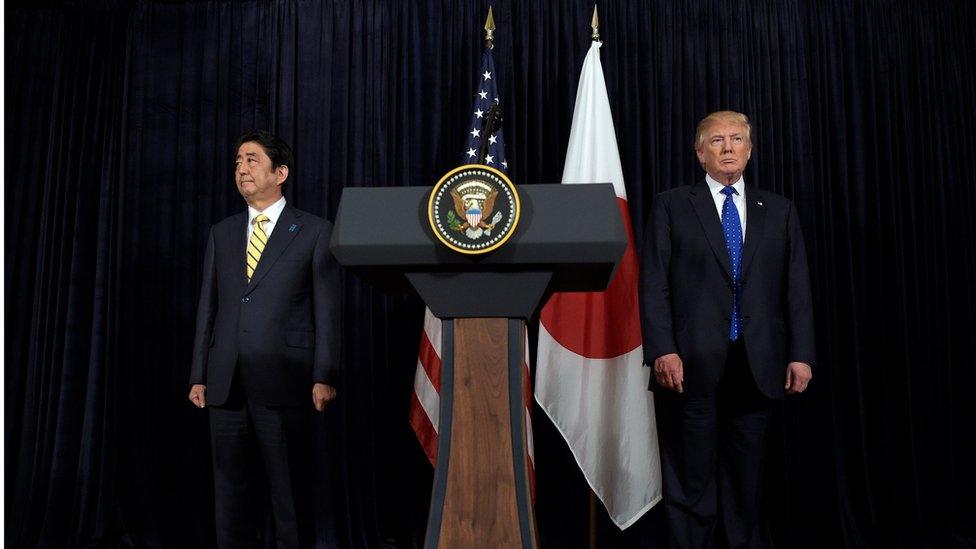
Japan's Prime Minister Abe (left) said on Monday he expected Mr Trump to take a tougher line on North Korea
How are the US, South Korea and Japan reacting?
US President Donald Trump described North Korea as a "big big problem", during a joint press conference with Canadian Prime Minister Justin Trudeau on Monday. He said he would deal with the country very strongly, but didn't give details.
The Pentagon said the launch was "a clear violation" of UN resolutions and that the US "reaffirmed its ironclad security commitments" to South Korea and Japan, US media reports said.
"We are capable of defending against a North Korean ballistic missile attack and will take all necessary measures to deter and defeat threats to our and our allies' territories and citizens," Pentagon spokesman Captain Jeff Davis told reporters.
In a statement after the Security Council meeting, US ambassador to the UN Nikki Haley called for action not "words" against Pyongyang.
"We call on all members of the Security Council to use every available resource to make it clear to the North Korean regime - and its enablers - that these launches are unacceptable.''
The US has long blamed China for undermining sanctions against North Korea.
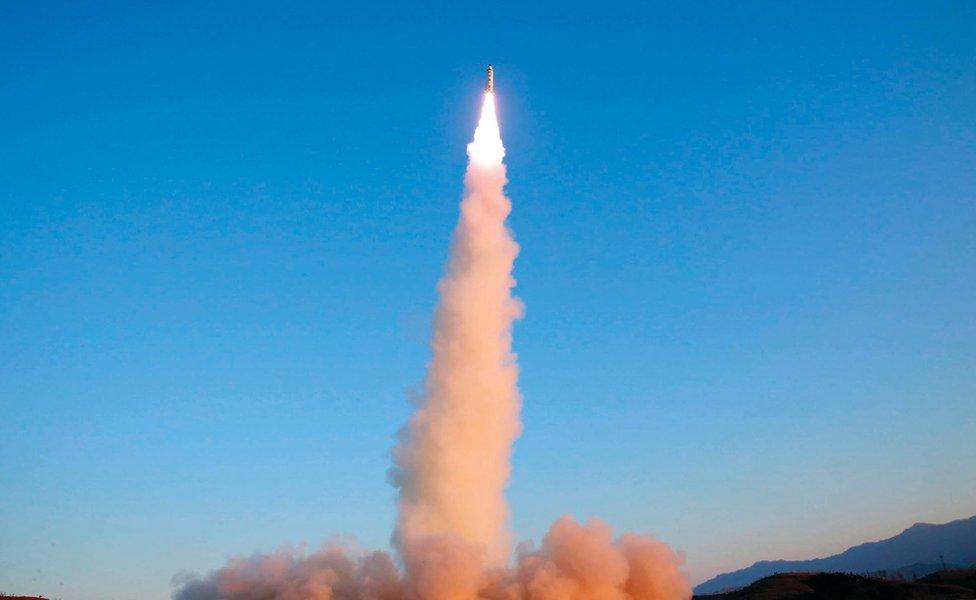
The Pukguksong-2 is believed to be a new type of solid-fuel rocket
Japan's Prime Minister Shinzo Abe was with President Trump when news of the test first broke, after which the two leaders condemned the launch and stressed joint resolve in the face of North Korean threats.
In South Korea, the defence ministry said American strategic assets would be deployed in its annual joint military exercise with the US, apparently in response to the launch.
- Published3 February 2017
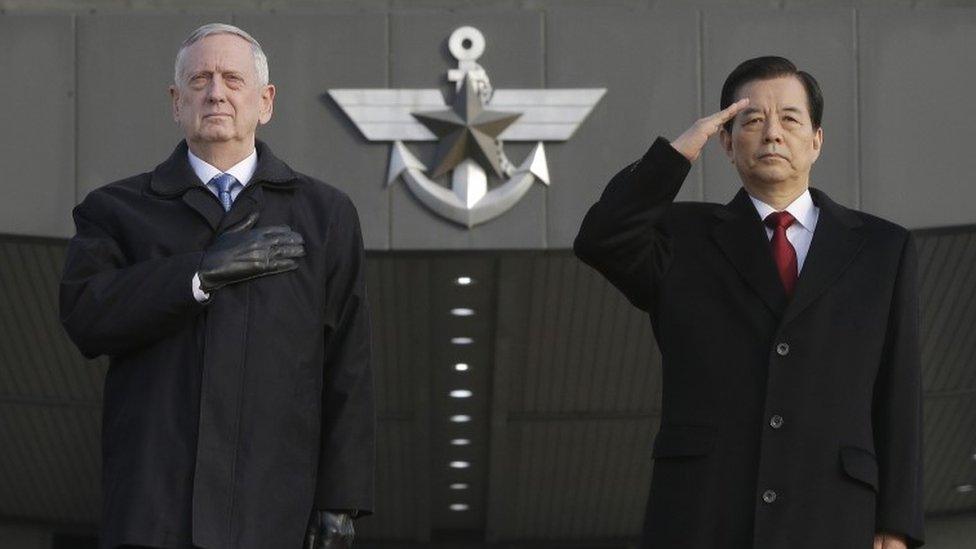
- Published1 January 2017
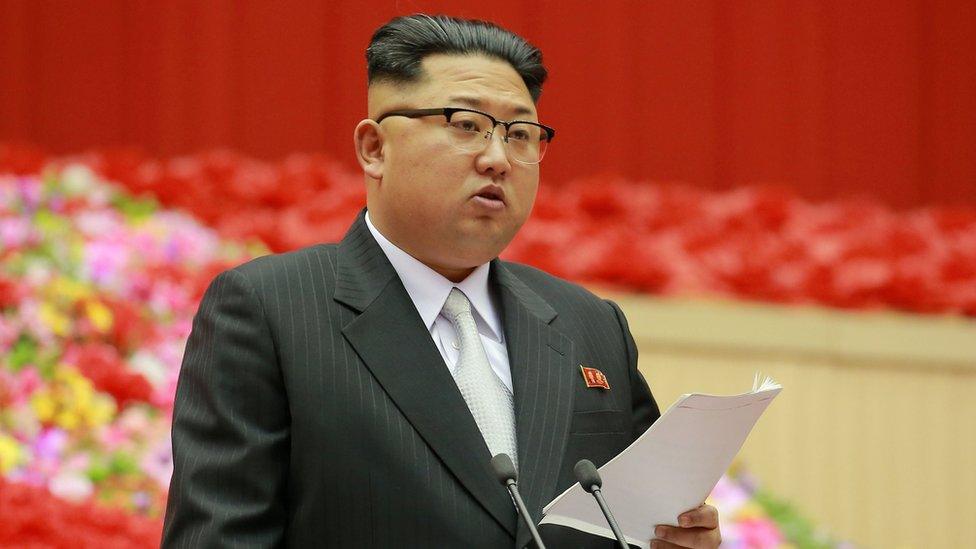
- Published10 August 2017
- Published14 February 2017
